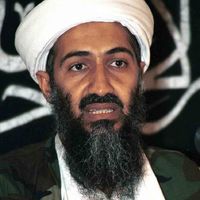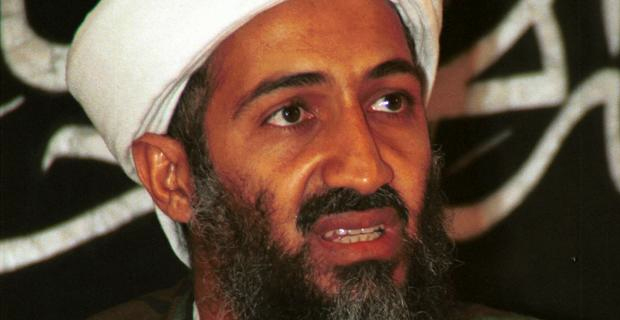
Osama bin Laden so distrusted Iran that he or dered his wife to remove any fillings received in Iran out of fear the Islamic Republic had planted a tracking device there to find where he was hiding.
A total of 103 of the documents captured at Bin Laden’s Pakistani hideaway when he was killed were released last week by the US director of national intelligence.
They show Bin Laden was not only paranoid about the United States finding him, but also fearful that Iran was trying to locate him.
Several of his relatives fled from Afghanistan into Iran when the Americans invaded after the September 11, 2001, attacks. The Iranians kept them under a form of house arrest—or, more accurately, as hostages.
After a decade, some were allowed to leave, including Khairiyah Sabar, better known as Um Hamzah, Bin Laden’s third wife.
Bin Laden was ecstatic at the prospect of being reunited with her. But he was also very suspicious as to why Iran would allow such a valuable hostage to go. “The Iranians are not to be trusted,” he wrote. He speculated that the most likely reason Iran was willing to let her go was that they were planning to use her to find him.
In a letter dated September 26, 2010, and sent to someone who would help get her to Pakistan after she left Iran, Bin Laden wrote:
“Before Um Hamzah arrives here, it is necessary for her to leave everything behind, including clothes, books, everything that she had in Iran. Everything that a needle might possibly penetrate. Some chips have been lately developed for eavesdropping, so small they could easily be hidden inside a syringe. Since the Iranians are not to be trusted, it is possible to implant a chip in some of the belongings that you might have brought along with you.”
In a later but undated letter sent to his wife, he waxed romantic and commented: “How long I have waited for your departure from Iran.”
In a postscript at the bottom of the letter, he wrote: “I was informed that you visited an official dentist in Iran complaining about a filling she put in for you. If she put in the filling for you more than a year before your departure from Iran, then do not worry about it. Otherwise, you need to go to the doctor and complain about the filling in your molar and ask to have the filling replaced….
“I would like you to inform me of the reasons they gave you before your release justifying why you were the first in my family to be released.”
Um Hamzah was soon freed and was brought to her husband’s compound in Pakistan just a few months before he was killed by American troops on May 2, 2011. They found Um Hamzah in the compound and left her there. The US director of national intelligence also released a list of the English-language books found in Bin Laden’s lair. About half of them promoted various conspiracy theories. There were volumes about the Illuminati and the Freemasons and, oddly, one that asserted the 9/11 attacks were an inside job by the Bush Administration.
One of the non-conspiracy books was “Checking Iran’s Nuclear Ambitions,” by Henry Sokolski and Patrick Clawson. Clawson’s articles often appear in the Commentary section of the Iran Times.
One theme that regularly reappears in his letters to operatives is a demand that his followers stop wreaking havoc on fellow Arabs and focus instead on shedding the blood of Americans.
Letters Bin Laden sent to Al-Qaeda leaders demanded mass casualty attacks against American targets and insisted that Al-Qaeda affiliates in the Middle East stop wasting their time on attacks against local government targets. “The focus should be on killing and fighting the American people,” Bin Laden emphasized.
To the end, Bin Laden remained obsessed with attacking Americans. In an undated letter he told jihadi militants in North Africa they should stop “insisting on the formation of an Islamic state” and instead attack US embassies in Sierra Leone and Togo and American oil companies. Bin Laden offered similar advice to the Al-Qaeda affiliate in Yemen, telling it to avoid targeting Yemeni police and military targets and instead prioritize attacks on American targets.

